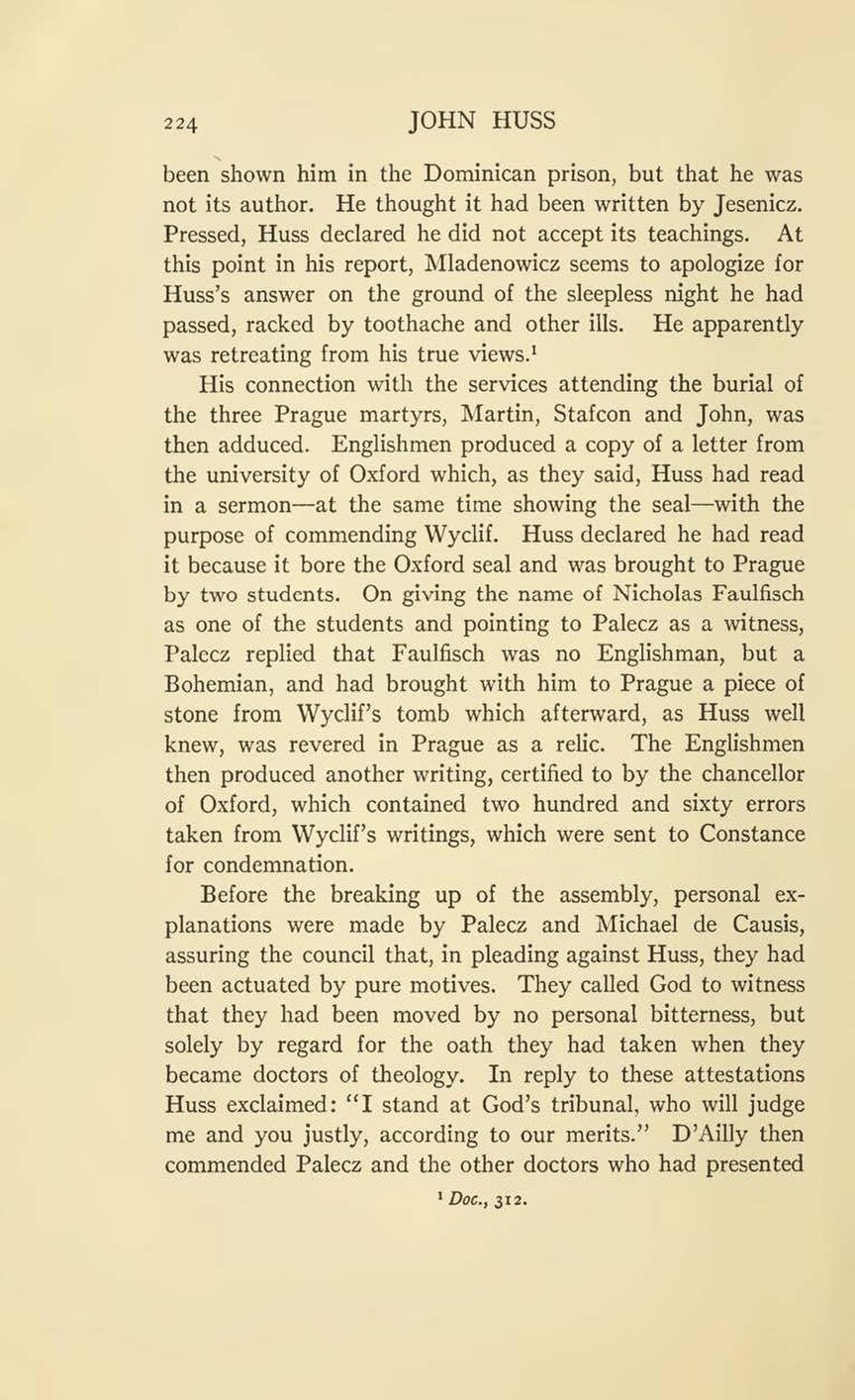been shown him in the Dominican prison, but that he was not its author. He thought it had been written by Jesenicz. Pressed, Huss declared he did not accept its teachings. At this point in his report, Mladenowicz seems to apologize for Huss’s answer on the ground of the sleepless night he had passed, racked by toothache and other ills. He apparently was retreating from his true views.[1]
His connection with the services attending the burial of the three Prague martyrs, Martin, Stafcon and John, was then adduced. Englishmen produced a copy of a letter from the university of Oxford which, as they said. Huss had read in a sermon—at the same time showing the seal—with the purpose of commending Wyclif. Huss declared he had read it because it bore the Oxford seal and was brought to Prague by two students. On giving the name of Nicholas Faulfisch as one of the students and pointing to Palecz as a witness, Palecz replied that Faulfisch was no Englishman, but a Bohemian, and had brought with him to Prague a piece of stone from Wyclif’s tomb which afterward, as Huss well knew, was revered in Prague as a relic. The Englishmen then produced another writing, certified to by the chancellor of Oxford, which contained two hundred and sixty errors taken from Wyclif’s writings, which were sent to Constance for condemnation.
Before the breaking up of the assembly, personal explanations were made by Palecz and Michael de Causis, assuring the council that, in pleading against Huss, they had been actuated by pure motives. They called God to witness that they had been moved by no personal bitterness, but solely by regard for the oath they had taken when they became doctors of theology. In reply to these attestations Huss exclaimed: “I stand at God’s tribunal, who will judge me and you justly, according to our merits.” D’Ailly then commended Palecz and the other doctors who had presented
- ↑ Doc., 312.
